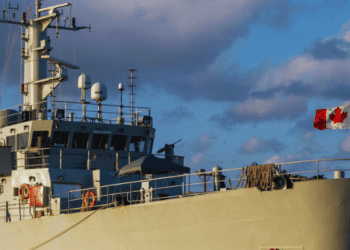This week rumours of the demise of the federal Department of Veteran’s Affairs came to light. Two days ago Brian Lee Crowley provided sage comment to the Globe and Mail’s John Ibbitson on this issue.
Today, in an editorial titled Honour the veterans, the Calgary Herald says (the bold is mine):
“As Canada’s Korean and Second World War veterans pass away, plans are afoot to downsize or even eliminate the Department of Veterans Affairs, possibly by rolling it in with the Department of National Defence. Our gut reaction is to agree with Brian Lee Crowley of the Macdonald-Laurier Institute for Public Policy. “If there is one group to whom the country owes an undeniable debt of gratitude that should be manifested in solicitous attention to their needs, it would be those who risked their lives on behalf of the country,” he said this week.”
It is clearer each day that Brian Lee Crowley, the Macdonald-Laurier Institute and all our associates are rapidly becoming the go-to source for comment and opinion on federal issues.
I thought you might like to see the entire comment which Dr. Crowley provided upon the original request from John Ibbitson which came via email.
Question: “I’m writing a story questioning whether the Department of Veterans Affairs should be shut down, since there are only 140,000 vets left, and their ranks are thinning by 1,700 a month. Do you folks have any thoughts on that?”
Reply from Brian Crowley: “I see two competing principles at work here. On the one hand, we have great pressures on the government to reduce spending and so abolishing the DVA might result in some administrative savings, e.g. by rolling it into DND.
On the other hand if there is one group to whom the country owes an undeniable debt of gratitude, that should be manifested in solicitous attention to their needs, it would be those who risked their lives on behalf of the country. I tend to come down on this side of the conflict between these two principles. Veterans have earned an agency of government whose sole function is to be attentive to their needs (even if in practice it sometimes fails to deliver to the standard we might all like).
There are also practical issues. It is true that we are losing a large number of older vets as the passage of time takes its toll on those who fought in WW II and Korea. On the other hand, we are now several years into the first major combat role we have played since Korea, recruitment is way up, and the kind of warfare we are engaged in has unleashed a big wave of e.g. PTSS, and we are going to be replenishing the ranks of veterans significantly. There are also huge family issues around the stress of this kind of warfare, and I suspect that we will need to care and support for the vets themselves and their families long after they have left the service.
Taking the long view, and looking at the balance of moral and practical obligations, I’d say that abolishing the DVA would not be the right thing to do. Now if you ask me if that hidebound bureaucracy could be shaken up to deliver more to vets and their families more effectively, the answer to that is undoubtedly yes …but to their credit they have been making a lot of effort in recent years through e.g. contracting out.





